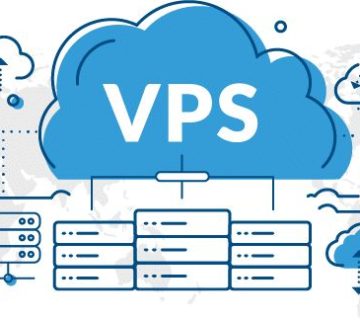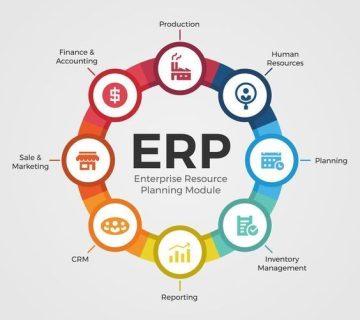Introduction
Embracing the digital shift is paramount in contemporary work culture and most employers are adapting their business for a Digital Workforce. As businesses adapt, understanding this shift is pivotal. The transition towards remote work has revolutionized how businesses function. It has become more than a trend; it’s a fundamental transformation in how work is perceived and executed. Modern work culture is no longer confined to traditional office spaces. The impact of this transition is far-reaching, influencing diverse aspects of business operations. From altering employee dynamics to reshaping organizational structures, the digital workforce is a game-changer.
The essence lies in comprehending this paradigm change and leveraging its potential. It’s a shift towards flexibility, efficiency, and a broader talent pool. Remote work offers a new dimension, blurring geographical boundaries and fostering a global approach. As this transformation unfolds, businesses must grasp its implications to thrive and remain competitive. It’s about seizing the opportunities this shift presents and sculpting a work culture that aligns with the digital era. Companies need to recalibrate their strategies and embrace a dynamic and tech-driven approach to stay relevant.
Strategizing for Remote Work Implementation
Formulating a Remote Work Policy
Formulating a remote work policy is pivotal for a successful transition. It’s about setting clear guidelines and expectations for a virtual work environment. A well-crafted policy ensures that employees understand their roles and responsibilities in this new work landscape. Essential elements of the policy encompass communication protocols, expectations regarding availability, and reporting mechanisms. Guidelines related to working hours, productivity evaluation, and data security are crucial components. Defining these parameters ensures a structured and efficient virtual work setup.
A robust remote work policy not only creates consistency but also fosters a sense of accountability and professionalism among employees. It provides a framework for managing remote teams effectively and aligning them with the organizational objectives. Crafting this policy requires thoughtful consideration of the company’s unique needs and goals. It’s an opportunity to lay the foundation for a productive, connected, and empowered digital workforce. By delineating the norms of remote work, businesses can navigate this transformative phase with clarity and confidence, ensuring a smooth transition into the realm of a digital workforce.
Selecting Appropriate Communication Tools
Selecting appropriate communication tools is a critical step in establishing an effective virtual workspace. It’s about finding the right solutions that enable seamless collaboration and connectivity for a digital workforce. Various tools are available, each catering to specific communication needs within a remote work environment. From instant messaging applications to video conferencing platforms, these tools bridge geographical gaps and facilitate real-time interactions. The choice should align with the organization’s communication style and workflow, ensuring smooth exchanges of ideas and updates.
It’s vital to assess the features, ease of use, and integration capabilities of these tools before implementation. Opting for tools that are intuitive and compatible with existing systems ensures a hassle-free transition into the digital work landscape. Ultimately, the goal is to foster clear, effective communication and maintain a sense of unity among remote teams. By carefully selecting and integrating appropriate communication tools, businesses can lay a strong foundation for successful remote work, enhancing productivity and collaboration among their digital workforce.
Implementing Effective Project Management Systems
Implementing effective project management systems is essential for organizing work and tracking progress in a virtual setting. It’s about adopting systems that facilitate efficient project coordination, task delegation, and progress monitoring. These systems enable teams to plan collaboratively, assign tasks, set deadlines, and visualize project timelines. By doing so, businesses ensure that projects stay on track, deadlines are met, and goals are achieved. The right project management tool can be a game-changer for remote teams, promoting transparency, accountability, and streamlined workflows. It’s crucial to choose a system that aligns with the organization’s project management needs and integrates well with other tools in use. Implementing an effective project management system not only optimizes processes but also enhances team productivity, making it a fundamental element of adapting to a digital workforce.
Addressing Security Concerns when Adapting Your Business for a Digital Workforce
Addressing security concerns is paramount for safeguarding business data and privacy in a virtual landscape. It involves implementing robust cybersecurity measures and educating the remote workforce about potential risks. By doing so, businesses can fortify their defences against cyber threats, ensuring the integrity and confidentiality of critical information. This includes employing encryption tools, multi-factor authentication, regular security updates, and VPNs to secure data transmission and access. Additionally, fostering a cybersecurity-aware culture among employees and educating them on best practices can significantly contribute to a more secure virtual work environment. It’s crucial to conduct regular security audits and risk assessments to identify vulnerabilities and proactively address potential threats. By prioritizing security in the remote work setup, businesses demonstrate a commitment to protecting both their and their clients’ sensitive data.
Balancing Work: Employee Well-being as you adapt your business for a digital Workforce
Maintaining a healthy work culture while embracing a remote setup is crucial for both productivity and employee satisfaction. By fostering open communication and encouraging regular check-ins, businesses can keep teams connected and engaged. It’s vital to set clear expectations regarding work hours and deliverables, promoting a structured routine that balances work and personal life effectively. Providing resources for mental health support and creating opportunities for virtual team-building activities are essential steps in prioritizing employee well-being. Additionally, managers should encourage breaks and time off to prevent burnout and maintain a healthy work-life balance. Nurturing a supportive environment where employees feel heard, valued, and supported in both their professional and personal capacities is key to a successful remote work model.
Adapting Your Business for a Digital Workforce: A Future-Ready Workplace
When it comes to adapting your business for a digital workforce, it’s crucial to embrace change and tailor strategies accordingly. Understanding the shift towards remote work and acknowledging its impact on modern work culture is the first step. Formulating a clear remote work policy that includes essential guidelines is paramount to ensuring a cohesive virtual work environment. Selecting appropriate communication tools to facilitate seamless collaboration and connectivity further enhances this experience.
Effective project management systems help organize work and track progress efficiently, vital for remote teams. Addressing security concerns and safeguarding business data and privacy in a virtual landscape is non-negotiable. Lastly, finding the balance between work and employee well-being is key to maintaining a healthy work culture.
Summarily, to succeed in the digital work landscape, businesses need to adapt and evolve. Establishing robust remote work policies, embracing effective communication and project management tools, and ensuring security measures are the building blocks. Coupled with a focus on employee well-being, these strategies create a future-ready workplace that remains competitive and agile in the evolving digital landscape.



